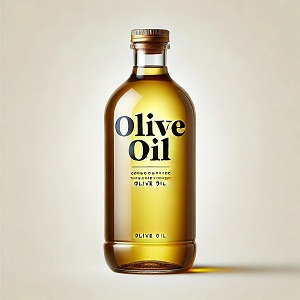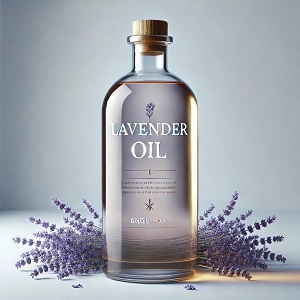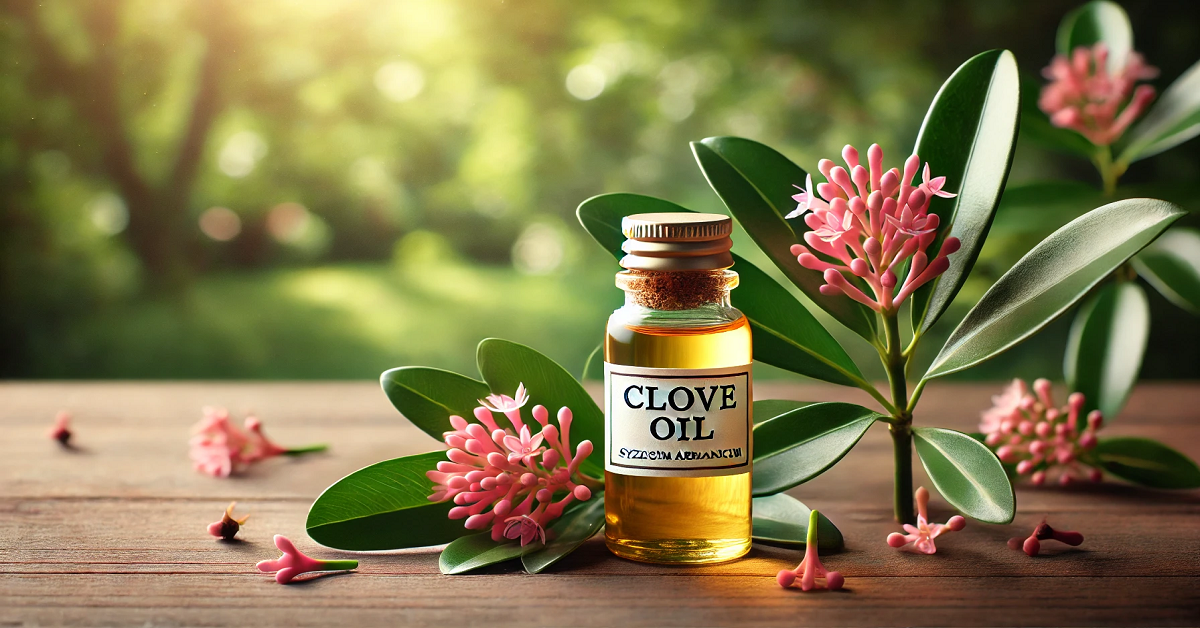
Clove plant, scientifically known as Syzygium aromaticum. The clove tree is native to Southeast Asia, particularly Indonesia, but in various parts of the world, including Madagascar, Zanzibar, and India. Clove oil is extracted primarily from the clove flower buds but also from the leaves and stems. However, the concentration and chemical composition may vary depending on the part used.
Extracting clove oil generally involves steam distillation, commonly used to extract essential oils—high-quality oil. After harvesting, the buds are in the sun, and steam distillation to obtain the oil. This method ensures the preservation of the essential compounds found in clove oil, such as eugenol, its primary active component.
Eugenol gives clove oil its distinctive spicy, warm aroma, often associated with comfort and warmth liquid with a penetrating scent. Clove oil and even a tiny amount can produce a potent fragrance or flavor, making it widely used in aromatherapy, perfumes, and as a flavoring agent in food and beverages.
Clove oil is a fragrance component in various skincare and personal care products in the cosmetics world, thanks to its intense, aromatic profile. It is in traditional practices such as Ayurveda and Chinese medicine, not only for its aroma but also because it balances natural elements in the body. Historically, clove oil has been used for centuries in ancient civilizations for its aromatic properties.
Clove oil also has applications beyond health and beauty; it is sometimes used in agriculture and gardening to repel certain pests naturally. Its potency requires that it be before topical application or when diffused for aromatherapy.
Table of contents for green peppermint oil
- Introduction to Clove Plant and Clove Oil
- Extraction Methods and Chemical Composition
- Aromatic Properties and Active Components
- Traditional and Modern Uses of Clove Oil
- Is Clove Oil Edible?
- Scientific Studies on Clove Oil
- Frequently Asked Questions About Clove Oil
- Tips for Expanding the Uses of Clove Oil
- Conclusion: The Benefits of Clove Oil
Is clove oil edible?
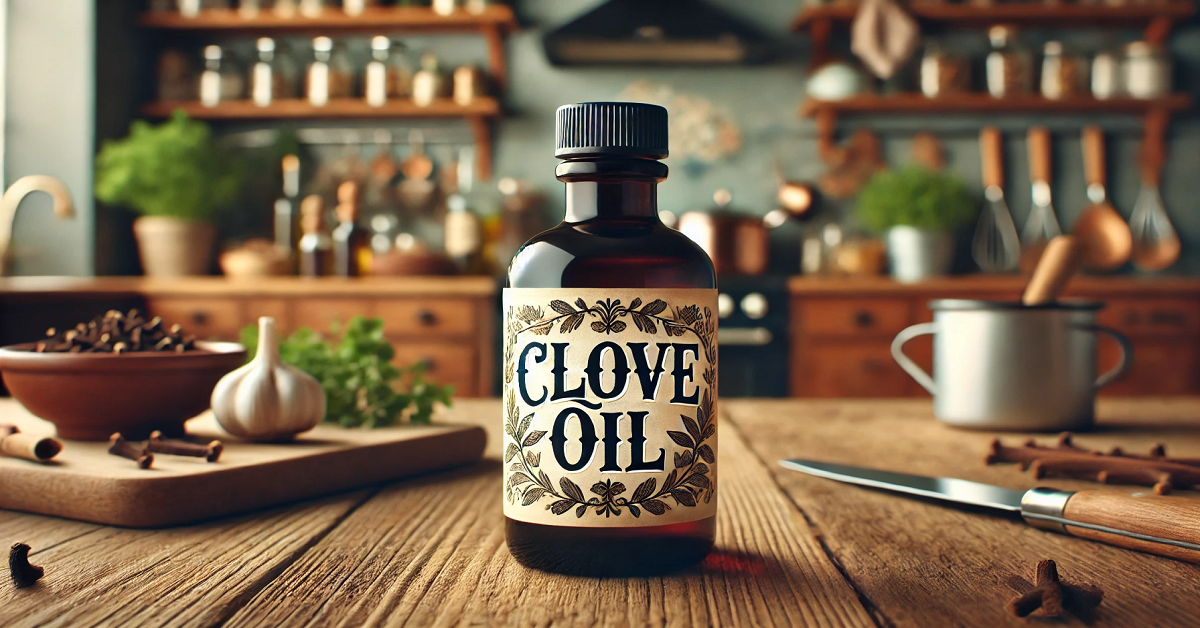
Cove oil is technically edible but must be in tiny amounts in edible-grade clove oil oral care products. Due to its highly concentrated nature and strong potency, only small quantities are safe for consumption, and it is usually heavily diluted before being added to food.
Culinary Uses of Clove Oil
Clove oil cooking for its warm, spicy flavor. It has baked goods, sauces, and spice blends. Clove oil might also be a component in seasonal foods, like pumpkin spice lattes or holiday desserts, where its distinct spicy flavor contributes to a rich and aromatic experience.
However, because clove oil is far more potent than the ground or whole cloves typically used in cooking, only a tiny amount—often just a few drops—can flavor an entire dish. When used as a flavoring, clove oil is typically diluted in water, alcohol, or oil to ensure it blends evenly into the food and overwhelms the taste—Cove oil to processed products like chewing gum, sweets, and certain syrups in industrial food production.
Clove Oil in Beverages
Clove oil is used in small amounts to enhance the flavor of beverages. It spices teas, mulled wines, and other drinks where warm, aromatic spices are desirable. Again, only tiny amounts to avoid bitterness or an overpowering taste.
Edible Clove Oil in Oral Care
Clove oil’s strong taste and numbing effect make it famous for soothing the mouth and gums. It is also an ingredient in many over-the-counter dental products, primarily to help temporarily relieve minor oral discomfort. It is safe for short-term, localized use in these cases.
Risks and Precautions

While clove oil is safe in minimal amounts, consuming it in larger quantities can be dangerous. Clove oil contains a high concentration of eugenol, which can cause adverse effects if ingested improperly.
It is also important to note that clove oil is unsuitable for everyone, especially in concentrated amounts. Children, pregnant or breastfeeding women, and people with certain health conditions should avoid ingesting clove oil unless directed by a healthcare provider. Sparingly and diluted when included in recipes or oral care products.
Conclusion
Clove oil can be used in cooking, beverages, and oral care products when diluted and in small, food-safe amounts. It adds a unique flavor to dishes, specific regional cuisines, and festive recipes. However, because it is so potent, caution is advised when using clove oil in food, and always be consumed in moderation.
What do the studies say about clove oil?
Studies on clove oil have explored its various properties, from its chemical composition to its potential therapeutic applications. The oil, rich in eugenol and other bioactive compounds, has been researched across fields such as medicine, dentistry, pharmacology, and agriculture.
1. Antimicrobial Properties
One of the most extensively studied aspects is its antimicrobial activity. Numerous studies have shown that clove oil, particularly its main component, eugenol, exhibits antimicrobial solid effects against many bacteria, fungi, and viruses.
2. Dental Health Applications
One of its most well-known applications is its role in dental health. Studies have shown that clove oil, specifically eugenol, has anesthetic, antiseptic, and anti-inflammatory properties. It has traditionally alleviated toothaches and gum pain.
3. Anti-inflammatory and Analgesic Effects
Clove oil can reduce inflammation and provide pain relief. Its anti-inflammatory effect is due to eugenol, which can inhibit the production of inflammatory molecules.
4. Antioxidant Properties
Clove oil has shown potent antioxidant activity in several studies, indicating its potential for protecting cell radicals and the antioxidant capacity of eugenol and other phenolic compounds in the oil.
5. Potential Toxicity and Side Effects
While clove oil has many beneficial properties, studies have also highlighted the potential risks of toxicity when misused. Overuse or ingesting large amounts of undiluted clove oil can cause adverse effects, mainly due to the high concentration of eugenol.
Frequently Asked Questions (FAQs) about Clove Oil:
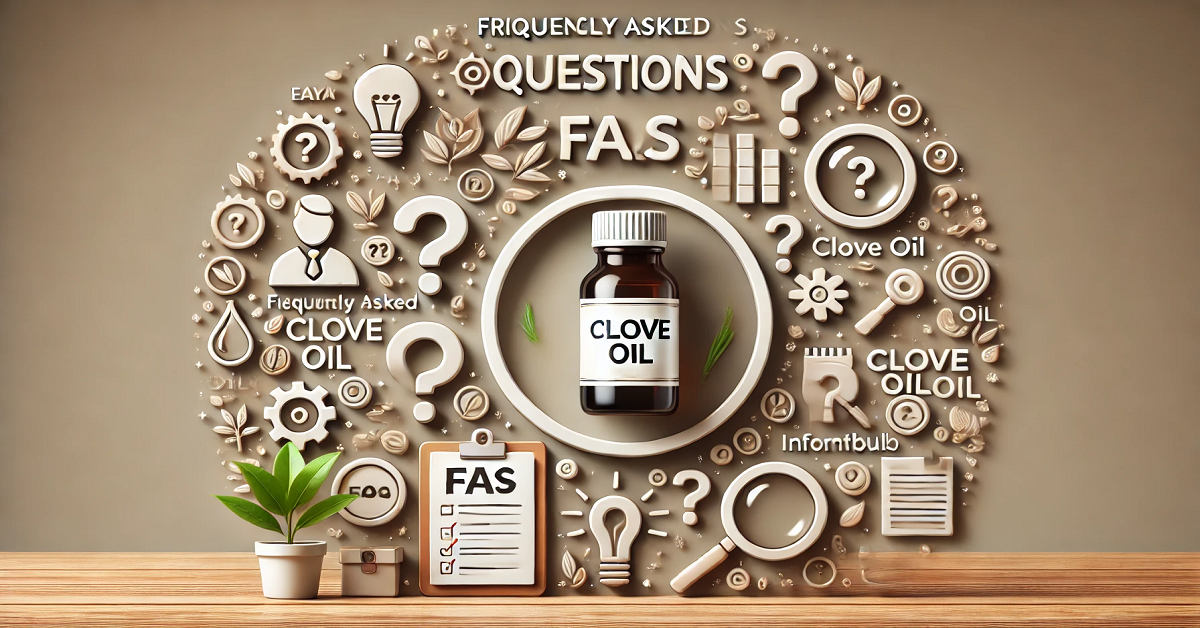
What is clove oil made?
It can also be extracted from the stems and leaves of the plant, although the oil is from flower buds.
Consuming large or concentrated amounts can be harmful in tiny, food-grade quantities. It is typically diluted before ingestion or added to food as a flavoring agent in minuscule amounts.
What are the active compounds in clove oil?
Eugenol is the primary component of clove oil and is responsible for its characteristic aroma and medicinal properties. Other elements include beta-caryophyllene and humulene.
What are the potential side effects of clove oil?
While clove oil has many benefits, overuse can lead to side effects, such as skin irritation, allergic reactions, and even liver damage if consumed in large amounts.
What are the uses of clove oil in dental care? Clove oil has been used traditionally in dentistry for its pain-relieving and antiseptic properties. It is often applied to alleviate toothaches, gum pain, and oral infections.
Does clove oil have antimicrobial properties?
It has strong antimicrobial properties and is effective against bacteria, fungi, and viruses. It is a natural remedy to fight infections.
Is clove oil safe during pregnancy?
While some diluted forms are safe for external use, ingestion or use of concentrated clove oil is not recommended unless a healthcare provider advises.
What is clove oil’s shelf life?
When stored properly in a cool, dark place in a tightly sealed container, clove oil can last up to 3 years. However, its potency and effectiveness may diminish over time.
Can clove oil be used as an insect repellent?
It can repel certain insects, such as mosquitoes, and natural insect repellents.
Reliable Links for Further Reading:
National Center for Biotechnology Information (NCBI) – Research on Clove Oil
This comprehensive database contains peer-reviewed articles and studies on clove oil, covering its antimicrobial, anti-inflammatory, and other health properties.
NCBI Clove Oil Studies
PubMed – Research Articles on Clove Oil
PubMed provides access to extensive research studies on clove uses in medicine, dentistry, and more.
PubMed Clove Oil
WebMD – Clove Oil Overview
WebMD offers a user-friendly overview of clove uses, safety information, and potential side effects.
WebMD Clove Oil
Healthline – Benefits and Uses of Clove Oil
Healthline provides articles on the health benefits, potential risks, and how to use clove oil safely.
Healthline Clove Oil
A plant-derived product, clove oil appeals to individuals seeking natural solutions to health and wellness. When used correctly, it is a safer alternative to synthetic products, which is why it is found in many natural and organic health products.
Antimicrobial Benefits: Scientific studies have consistently shown that clove oil has potent antimicrobial effects. Its ability to fight off bacteria, fungi, and viruses makes it a key player in natural infections and wound care remedies.
Advice for Further Exploration:
While clove oil offers a broad spectrum of uses, it is worth expanding the research into its specific applications. It can delve into areas such as:
While clove oil offers a broad spectrum of uses, it is worth expanding the research into its specific applications. It can delve into areas such as:
Exploring new culinary uses for clove oil in innovative recipes or natural food preservation.
It is investigating its environmental uses, such as its potential as a natural pesticide in sustainable agriculture.
By exploring these areas further, they can better understand how clove oil fits into a modern, natural lifestyle and contribute to the growing body of knowledge surrounding this potent essential oil.

